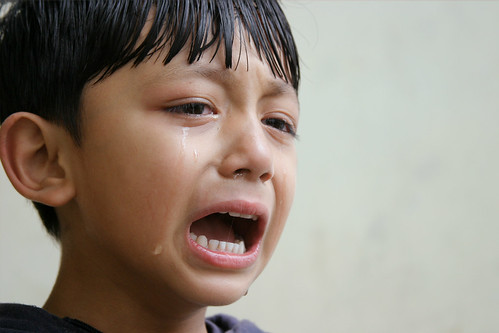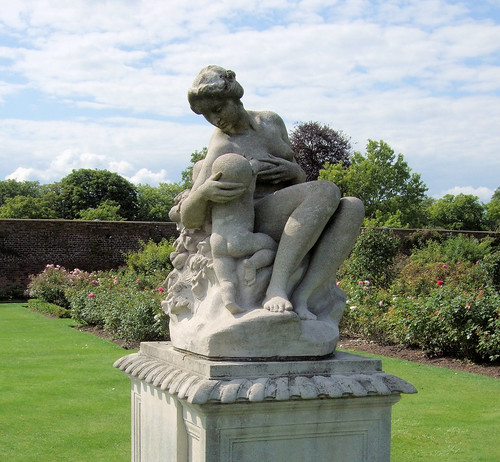Do not stifle the Holy Spirit. Do not scoff at prophecies, but test everything that is said. Hold on to what is good. Stay away from every kind of evil.
I Thess 5:19-22 (NLT)
Traditions.
I was raised in Bible churches. We liked to claim that we didn't have religiosity, only the Bible. That there was no tie in to the traditions of men, but only the pure, unrefracted, open, plain Word of God.
Which of course
wasn't true. Each interpretation of the Bible is built on several layers of traditions, each made by men (and often and only by men); each church practice is based on some mixture of social, cultural, historical, familial customs. Sometimes the passing of these practices and belief systems are well thought out. Often not.
When my church refused to practice Lent, when it refused to tackle the Lord's Supper with any seriousness (except to scare off guilty congregants), I seriously considered going full papal. If I weren't newly married to an ex-Catholic, I probably would have too. I liked their respect for thousands-year old traditions, for a link to their past. I appreciated their appreciation of the forbearers, "the cloud of witnesses cheering us on."
And there are many things to love about Catholicism and many to love about the Orthodox Church. But much about the traditions that they had kept didn't hold true for me.
I also felt that Jesus or the first disciples wouldn't approve of the male-centric dominance and (especially in the Catholic Church)
a hierarchical rule that squashes questioning and, thus, discussion and necessary change. This wariness of innovation leads to a church resistant to having female leads, leaving functionally half of the church from the body itself, transitioning the church proper into more and more of a cold, dead institution - a lifeless corpse.
When Christians and Churches (whether new megachurches or storefronts or ancient networks of parishes)
prioritize institutions over community, we forget those we were sent out for in the first place - the marginalized, the outcast, the oppressed.
In order to maintain institution, with property and monies and prestige,
we must maintain the favor of the well-to-do, of the institution-holders. In order to do so, we must not upset their comfort by questioning male superiority, or hetero normalcy. Or White or Middle Class Supremacy.
Protestant churches, of course, are known for protesting the conventions of the Catholic Church. Many decided to radically protest any vestiges and remains of Catholic thought - but that's silly.

And, maybe a bit dangerous. Because if you don't have a line of traditions to interpret your bible with, what do you do with some of the parts that aren't quite understandable? You could build up a whole other rubric and system of theology to handle thorny issues of theology. Or you could pretty much pull whatever you want out of your ass to defend your own fear and hatred.
The world’s got an earful of that ass noise recently, though. A pastor suggests that the US should air drop homosexuals (and queers, I guess?) into an electrified gate in order to exterminate gayness from our country. Because when the gays die out with all their gayness, then they can't teach the kids to be gay no more, right?
Or the pastor whose solution for homosexuality is to
scare or capital punish it out of them:
They should be put to death. That’s what happened in Israel. That’s why homosexuality wouldn’t have grown in Israel. It tends to limit conversions. It tends to limit people coming out of the closet. — ‘Oh, so you’re saying we should go out and start killing them, no?’ — I’m saying the government should. They won’t but they should.
Or the little boy who learned and then sang (with much applause) happily that the gays certainly won't be making it past Peter at the Pearly Gates Luxury Resort. The pastor may be on the run,
but the church isn't apologizing.
The Pastor and members of Apostolic Truth Tabernacle do not condone, teach, or practice hate of any person for any reason. We believe and hope that every person can find true Bible salvation and the mercy and grace of God in their lives.
We are a strong advocate of the family unit according to the teachings and precepts found in the Holy Bible. We believe the Holy Bible is the Divinely-inspired Word of God and we will continue to uphold and preach that which is found in scripture.
You see, they're not hating,
because it's in the Bible. And if it's in the Bible, according to them, it can't be about hatred; it can only be about
God's Word and
God's Truth. And what could be hateful about that? They "
found" it in scripture, after all.
They say it’s in the Bible. And I believe they’re right. There’s a lot of stuff in the Bible. There’s a story of God-ordained genocide from the book of I Samuel, in addition to the many other acts of genocide ordained earlier in Joshua and then the utter carnage in Judges.
Most civilized Christians don’t like to talk about this. But I learned about it early on. In much the same way it’s
being taught to grade school kids in public schools through a Bible club (endorsed by the Supreme Court, thank you very much). And when it’s a part of the whole, unvarnished
Word of God, well, that’s a tradition you need to upkeep, right?
Misogyny, genocide, homophobia. Those are God’s traditions! We don't question them! They are in the
Word of God and part of the tradition of our fathers! And so they become Christian traditions, handed down from fathers to sons who listen to these stories and preachings and learn them well - thus sanctioned to hurt and marginalize those who are different, weak, other, effeminate, darker, foreign, immobile, sick.
Sure, it is congruent with stories of a certain god, revealed through the passages of scripture, claiming the same name as the Christian and Jewish God. But maybe not the same legacy. Not the same tradition. It is counter to another tradition of the Christian God - the one based on the Christ. One of inclusion and participation and acceptance and redemption. A God who’s tradition is particularly of love.
Test everything.
Hold on to what’s good.
The rubric is love. If it is
not of love, it is
not of God.
Not - as the Apostolic Truth Tabernacle would have us believe - if it is of “God” then it must necessarily be of love. Test the spirits. Test everything. Hold on to what’s good.
And when what we think is the
Word of God contradicts with the revelation of God through Jesus Christ, we must ask, "What is good?" What is revealed to be the God we long to follow?
Who are we worshiping? If I am to follow a god of hate, then damn it all, I'm not going down that route. I'm holding on to what's good.
Maybe there is a bright spot, a small one, to our intentional marginalization.In our mistreatment of women and other marginalized people groups, we've sent out the marginalized to reach the marginalized with the voice of their own marginalization. I think I'd rather have church outdoors, if that's where the good is...











